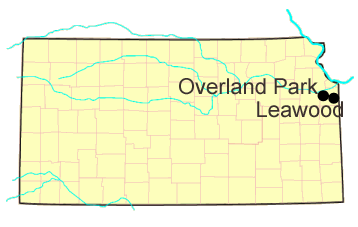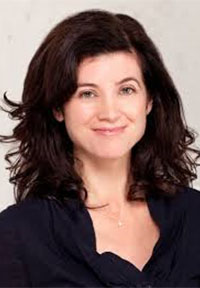| |
Candice Millard grew up in a small town in Ohio. Millard is a graduate of Baker University in Baldwin City and earned a master's degree in literature from Baylor University. She married Mark Uhlig in May 2001. Millard lives in Leawood with her husband and three children. She has a corner office at her husband's publishing company in Overland Park where she works while her three children are in school.
Candice Millard is a former writer and editor for National Geographic magazine. Her first book, The River of Doubt: Theodore Roosevelt's Darkest Journey, was a New York Times bestseller and was named one of the best books of the year by the New York Times, Washington Post, San Francisco Chronicle, Christian Science Monitor, and Kansas City Star. The River of Doubt was a Barnes & Noble Discover Great New Writers selection and a Book Sense Pick, was a finalist for the Quill Awards, and won the William Rockhill Nelson Award. It has been printed in Portuguese, Mandarin, Japanese and Korean, as well as a British edition. Millard's second book, Destiny of the Republic: A Tale of Madness, Medicine & the Murder of a President, rose to number five on The New York Times bestseller list and has been named a best book of the year by The New York Times, Washington Post, Kirkus Reviews, The Kansas City Star, Amazon, and Barnes & Noble. Destiny of the Republic won the Edgar Award for Best Fact Crime, the PEN Center USA award for Research Nonfiction, the One Book—One Lincoln Award, the Ohioana Award and the Kansas Notable Book Award. Millard's work has also appeared in Time Magazine, Washington Post Book World, and the New York Times Book Review.
---Information from Wikapedia and author's website
Return to Top of Page
|
|
|
| |
Crouching in darkness outside the prison fence in wartime southern Africa, Winston Churchill could still hear the voices of the guards on the other side. Seizing his chance an hour earlier, the 25-year-old had scaled the high, corrugated-iron paling that enclosed the prison yard. But now he was trapped in a new dilemma. He could not remain where he was. At any moment, he could be discovered and shot by the guards or by the soldiers who patrolled the dark, surrounding streets of Pretoria, the capital of the enemy Boer Republic. Yet neither could he run. His hopes for survival depended on two other prisoners, who were still inside the wall. In the long minutes since he had dropped down into the darkness, they had not appeared.
From the moment he had been taken as a prisoner of war, Churchill had dreamed of reclaiming his freedom, hatching scheme after scheme, each more elaborate than the last. In the end, however, the plan that had actually brought him over the fence was not his own. The two other English prisoners had plotted the escape, and agreed only with great reluctance to bring him along. They also carried the provisions that were supposed to sustain all three of them as they tried to cross nearly three hundred miles of enemy territory. Unable even to climb back into his hated captivity, Churchill found himself alone, hiding in the low, ragged shrubs that lined the fence, with no idea what to do next.
--- Prologue from Hero of the Empire
The idea came to Guiteau suddenly, "like a flash," he would later say. On May 18, two days after Conkling's dramatic resignation, Guiteau, "depressed and perplexed . . . wearied in mind and body," had climbed into bed at 8:00 p.m., much earlier than usual. He had been lying on his cot in his small, rented room for an hour, unable to sleep, his mind churning, when he was struck by a single, pulsing thought: "If the President was out of the way every thing would go better."
Guiteau was certain the idea had not come from his own, feverish mind. It was
a divine inspiration, a message from God. He was, he believed, in a unique position
to recognize divine inspiration when it occurred because it had happened to him before. Even before the wreck of the steamship Stonington, he had been inspired,
he said, to join the Oneida Community, to leave so that he might start a religious newspaper, and to become a traveling evangelist. Each time God had called him,
he had answered.
This time, for the first time, he hesitated. Despite his certainty that the message had come directly from God, he did not want to listen. The next morning, when the thought returned "with renewed force," he recoiled from it. "I was kept horrified," he said, "kept throwing it off." Wherever he went and whatever he did, however, the idea stayed with him. "It kept growing upon me, pressing me, goading me."
--- from Chapter 10 in Destiny of the Republic
Return to Top of Page
|
|
|





